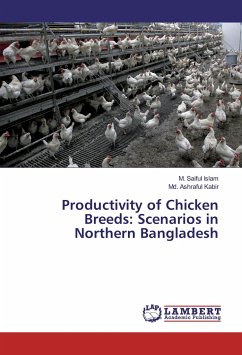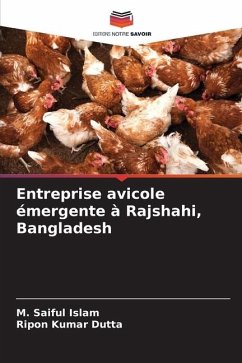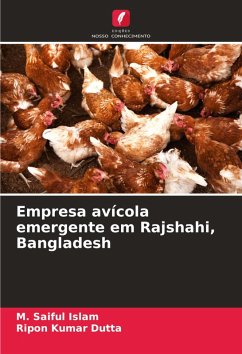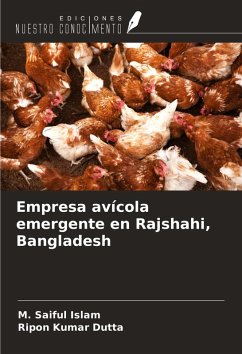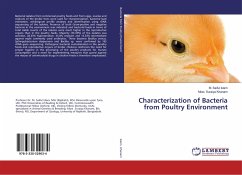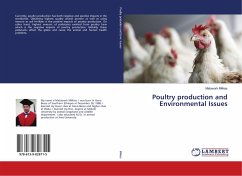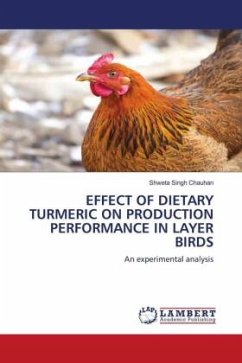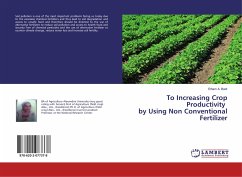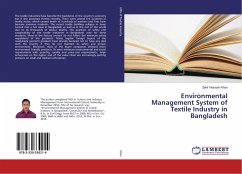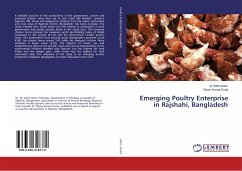
Emerging Poultry Enterprise in Rajshahi, Bangladesh
Versandkostenfrei!
Versandfertig in 6-10 Tagen
46,99 €
inkl. MwSt.

PAYBACK Punkte
23 °P sammeln!
A detailed account of the productivity of the government, private and backyard chicken farms that use to rear Cobb 500 (broiler), cockerel, Fayoumi, RIR, Sonali and indigenous chickens from the urban, semi-urban and rural areas of Rajshahi District, Bangladesh, has been analyzed. The study revealed that Sonali breed was the highest in production in both government and private poultry farms in the study area. The backyard chicken farms attained the maximum profit (profitability index of 0.646) compared to the private (0.114) and the government (-0.021) poultry farms. The government farm showed ...
A detailed account of the productivity of the government, private and backyard chicken farms that use to rear Cobb 500 (broiler), cockerel, Fayoumi, RIR, Sonali and indigenous chickens from the urban, semi-urban and rural areas of Rajshahi District, Bangladesh, has been analyzed. The study revealed that Sonali breed was the highest in production in both government and private poultry farms in the study area. The backyard chicken farms attained the maximum profit (profitability index of 0.646) compared to the private (0.114) and the government (-0.021) poultry farms. The government farm showed good management practices (score 4.00), the private farms scored 3.42 while the backyard chicken farms exhibited a lower score (2.87). The impacts of breed, sex and supplementary diets on the growth, meat and carcass characteristics of the experimental chickens revealed that Fayoumi was the highest for feed intake and live weight gain, while Sonali was the highest for feed conversion ratio. The relevance of the study to an emerging poultry enterprise in Rajshahi, Bangladesh, has been discussed in the work.



